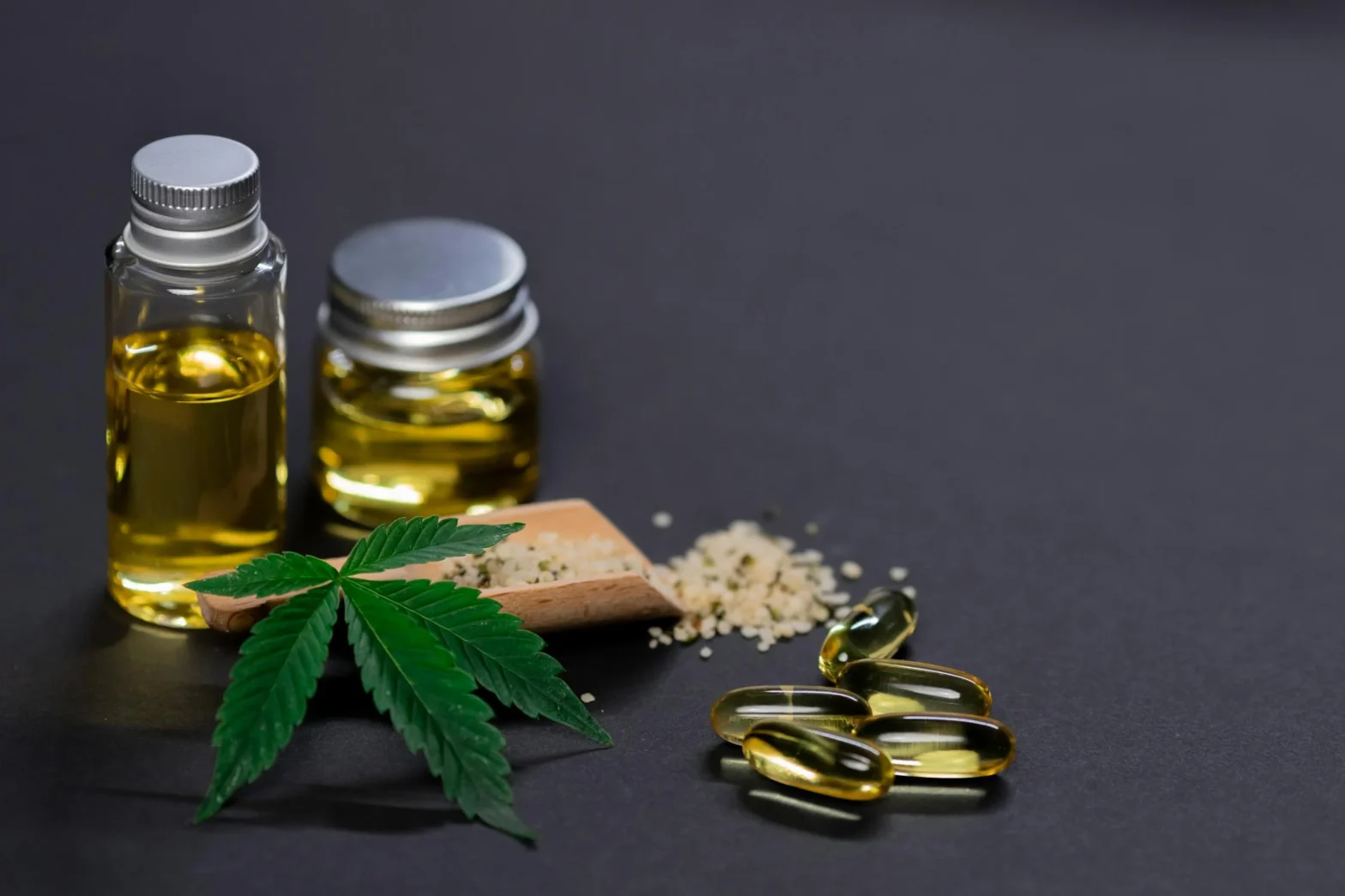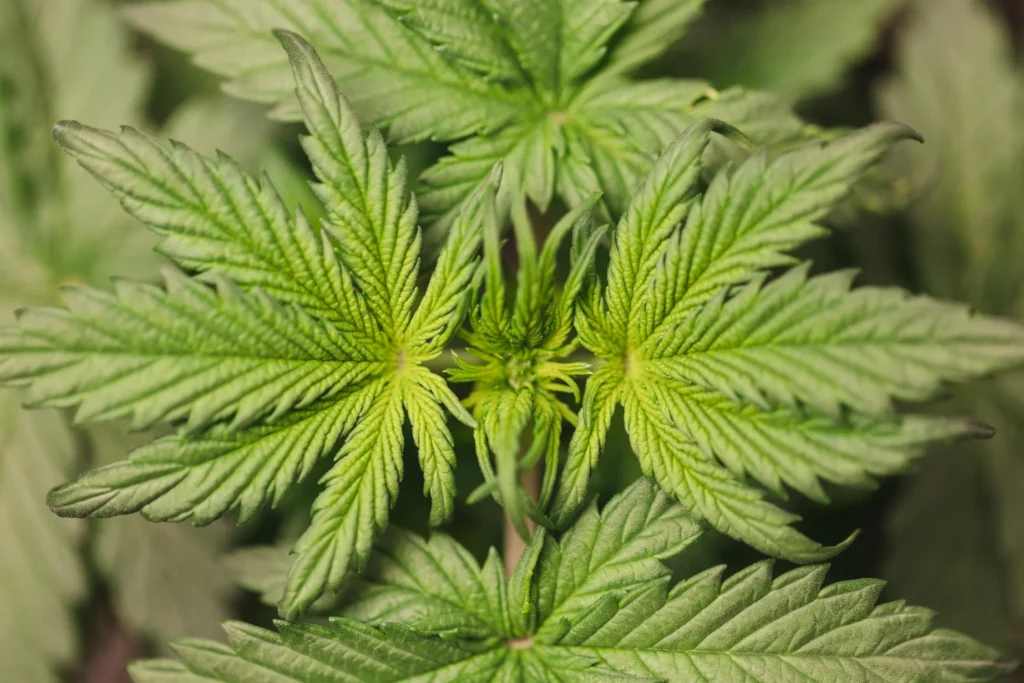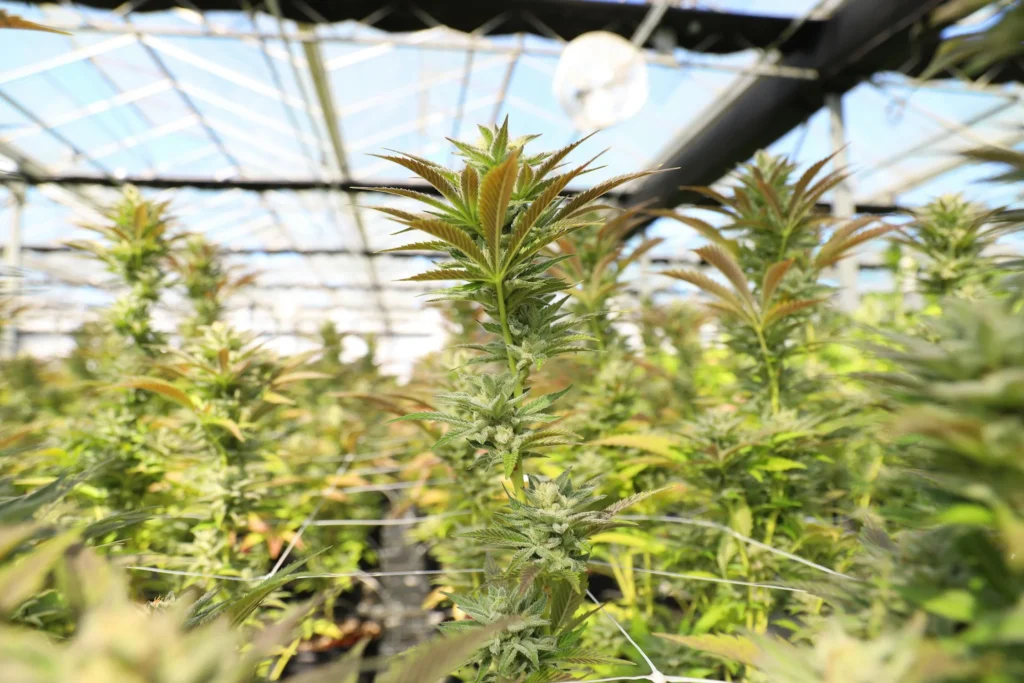
Understanding Good Manufacturing Practices (GMP) for CBD and Hemp
3/15/2024
Regenerative Agriculture
Quick Answer: Current Good Manufacturing Practices (GMP) for CBD and hemp ensure product safety, quality, and legal compliance, fostering consumer trust and industry credibility.
Key Takeaways:
- Good Manufacturing Practices (GMP) are essential for ensuring the quality, safety, and consistency of CBD and Hemp products, with cGMP representing the most current standards enforced by the FDA.
- CBD and Hemp manufacturers must navigate complex and varying state regulations in addition to federal guidelines, ensuring compliance across different jurisdictions and maintaining rigorous quality control systems.
- Implementing a robust Quality Management System (QMS) and staying committed to continuous improvement are critical for maintaining GMP compliance, expanding market access, and building consumer trust in the CBD and Hemp industry.
Defining Good Manufacturing Practices in the CBD and Hemp Industry
Good Manufacturing Practices (GMP) are a set of guidelines that ensure products are consistently produced and controlled according to quality standards. They are designed to minimize the risks involved in any pharmaceutical production that cannot be eliminated through testing the final product.
In the context of the CBD and Hemp industry, GMP is crucial. The Food and Drug Administration (FDA) oversees GMP compliance in the United States, setting the tone for product safety and consumer trust. GMP covers all aspects of production, from the starting materials and premises to the equipment and personal hygiene of the staff.
Variations in GMP standards can occur between countries, but the core principles remain focused on product quality and safety. For US manufacturers, adhering to these regulations is not just about legal compliance; it’s about ensuring that consumers receive products that are safe, reliable, and effective.
The Significance of GMP for CBD Product Quality and Consumer Safety
GMP plays a pivotal role in maintaining the integrity of CBD products. Without these guidelines, there’s a risk of contamination, incorrect dosing, and the presence of harmful substances. These risks can have serious repercussions, not only for consumer health but also for the credibility of the entire industry.
By following GMP, manufacturers can assure that their products are free from contaminants and consistent in their formulation. This adherence builds consumer confidence and demonstrates a commitment to quality. Moreover, GMP compliance is a legal requirement in the US, and failure to comply can result in severe legal consequences, including product recalls and sanctions.
GMP vs. cGMP: Understanding the Differences and Implications
While GMP refers to Good Manufacturing Practices, cGMP stands for current Good Manufacturing Practices. The ‘current’ in cGMP signifies that the regulations are up-to-date and align with the latest methods, technologies, and industry practices.
The FDA enforces cGMP to ensure that companies implement modern systems and processes that comply with the highest standards. For CBD and Hemp manufacturers, staying current with cGMP is essential for ongoing compliance and for keeping pace with advancements in manufacturing and quality assurance.
While cGMP certification and USDA organic certification are critical for manufacturers, they also provide important assurances for consumers. When selecting CBD and hemp products, look for those from GMP certified and organically certified manufacturers like Materia Regenerative.
These certifications demonstrate the manufacturer’s commitment to following proper standards for quality, safety, and regulatory compliance – giving consumers confidence that the products they purchase meet the highest industry benchmarks.
Regulatory Requirements for GMP in the CBD and Hemp Industry
Navigating FDA Guidelines for CBD and Hemp Manufacturing
When it comes to CBD and Hemp manufacturing, the FDA has a clear message: quality is key. The FDA sets forth specific requirements for facilities and processes to ensure every product reaching a consumer is exactly what it claims to be. These guidelines are all about maintaining the product’s identity, strength, quality, and purity.
For manufacturers, this means:
- Establishing robust quality control systems.
- Thoroughly testing products at each stage of production.
- Keeping detailed records of manufacturing processes.
The FDA’s role doesn’t end with setting guidelines; they enforce them too. If a company doesn’t comply, they might face serious consequences, including product recalls, fines, or even legal action. It’s a big deal because non-compliance can not only lead to financial loss but also damage consumer trust.
State-Specific Regulations and Compliance for CBD Products
Now, let’s talk about state regulations. If you thought the FDA’s rules were a handful, brace yourself. Each state in the US can have its own set of rules for CBD products. This can be a real headache for manufacturers, especially those who sell their products across state lines.
Here’s what manufacturers need to do:
- Keep an eye on the ever-changing legal requirements.
- Develop compliance strategies that are as agile as the regulations.
- Understand the nuances of interstate commerce laws.
It’s a tricky dance, but staying on top of these changes is crucial. After all, being compliant in one state doesn’t guarantee you’re good to go in another. Manufacturers must be vigilant and proactive to navigate this complex regulatory landscape successfully.
The Role of the USDA in Hemp Cultivation and Processing
Moving up the supply chain, we find the USDA overseeing hemp cultivation. They’re the ones checking if your hemp plants are playing by the rules, especially when it comes to THC levels. The USDA’s regulations are designed to ensure that only legally compliant hemp makes it to processing and, eventually, to consumers.
For CBD manufacturers, this means:
- Working with licensed hemp growers.
- Ensuring raw materials meet legal THC thresholds.
- Properly disposing of any non-compliant plants.
The USDA is also working towards aligning its regulations with GMP standards. This is great news for manufacturers as it streamlines quality expectations from cultivation to final product. It’s all about creating a transparent and trustworthy supply chain that consumers can rely on.

Implementing GMP in CBD and Hemp Manufacturing
Facility Design and Control to Meet GMP Standards
Creating a space where CBD and Hemp products can be made safely and effectively starts with facility design. It’s not just about having a building; it’s about crafting an environment that supports sanitation, prevents cross-contamination, and maintains product integrity. Let’s dive into what this involves:
- Facilities must be designed to allow for thorough cleaning and minimize dirt or product build-up.
- Environmental monitoring is key. This includes checking air quality to ensure it doesn’t compromise the product.
- Waste disposal systems must be in place to handle by-products without contaminating the production area.
- Different production stages, like processing and packaging, need their own specialized areas.
- Technology plays a big role in keeping everything running smoothly and up to GMP standards.
Equipment Selection and Maintenance for GMP Compliance
The right tools for the job make all the difference. In the world of CBD and Hemp manufacturing, equipment selection and maintenance are vital to meet GMP standards. Here’s why:
- Equipment must be chosen with product quality in mind. The wrong machinery could lead to subpar products.
- Regular calibration and maintenance are non-negotiable to avoid errors that could affect the product.
- Documentation is crucial. Every piece of equipment needs validation records to prove it’s up to the task.
- Cleaning and sanitization procedures must be followed to the letter to ensure equipment doesn’t contaminate the product.
- As production scales up, equipment should support quality control, not hinder it.
Establishing Standard Operating Procedures (SOPs) for Consistent Quality
Standard Operating Procedures (SOPs) are the backbone of consistent quality. They’re like a recipe that ensures every batch of CBD or Hemp product is as good as the last. Here’s what they cover:
- SOPs provide step-by-step instructions for handling materials, operating equipment, and packaging products.
- They’re essential for employee training and managing any changes in the process.
- SOPs ensure that every product is reproducible, which is a must for quality assurance.
- Regulators expect to see SOPs in place, and they’re a big part of staying GMP compliant.
Critical Aspects of Documentation and Record-Keeping
If GMP is the heart of manufacturing, then documentation and record-keeping are the circulatory system. They keep everything connected and flowing. Here’s what you need to know:
- Batch records, equipment logs, and quality control tests are just a few of the documents manufacturers need to keep.
- Good records help trace a product’s history, manage any recalls, and prove compliance during inspections.
- The move to digital records is gaining momentum, offering better access to data and helping maintain its integrity.
In the end, it’s all about ensuring that CBD and Hemp products are made in a way that’s safe, reliable, and consistent with industry standards.
Quality Assurance and Control in GMP-Certified Facilities
Developing a Robust Quality Management System (QMS)
For CBD and Hemp manufacturers, a Quality Management System (QMS) is the backbone of their operation. It’s an all-encompassing approach that touches every part of the production process. A solid QMS ensures that from the moment a supplier is qualified to the point when a product is released, every step is geared towards excellence. Here’s what makes a QMS effective:
- It’s a tool for continuous improvement, constantly pushing the boundaries of quality.
- Risk management is integral, identifying potential issues before they arise.
- A QMS isn’t just about meeting standards; it’s about exceeding customer satisfaction.
- The commitment from management is crucial, as their leadership sets the tone for quality.
Integrating a QMS with GMP requirements is not just a regulatory checkbox; it’s a commitment to quality that pays dividends in customer trust and brand reputation.
Conducting Effective Quality Audits and Self-Inspections
Quality audits and self-inspections are like health check-ups for GMP-certified facilities. They help ensure that the facility is in tip-top shape and compliant with all GMP standards. Here’s how to make sure these audits are effective:
- Audits should be conducted regularly by qualified auditors who know what to look for.
- Audit preparation is key, involving thorough planning and clear objectives.
- Post-audit, it’s all about taking corrective actions and ensuring these improvements are sustained.
These audits are not just about ticking boxes; they’re about fostering a culture of quality and continuous improvement.
Handling Deviations and Non-Conformances in GMP Environments
In a perfect world, everything goes according to plan. But in the real world, deviations and non-conformances can happen. In a GMP environment, it’s crucial to handle these situations with care. Here’s the approach:
- A deviation is an opportunity to dig deep and find the root cause.
- Implementing CAPA is about fixing the issue today and preventing it tomorrow.
- Documentation is critical, providing a clear record of what happened and how it was resolved.
Managing deviations effectively is essential for maintaining GMP compliance and ensuring the integrity of your products.
Ensuring Batch Consistency and Traceability in CBD Production
Every batch of CBD product should be like a clone of the last – identical in quality and potency. That’s where GMP practices come into play, ensuring batch consistency. But it’s not just about making great products; it’s also about knowing exactly where each ingredient came from and where each product goes. This is traceability. Here’s why it matters:
- It’s crucial for recall management, allowing you to quickly identify and address issues.
- Traceability boosts consumer confidence; they know they can trust what’s on the label.
- Regulatory requirements demand it, and it’s a key part of GMP compliance.
Achieving and Maintaining GMP Compliance for Long-Term Success
The GMP Certification Process for CBD and Hemp Manufacturers
Embarking on the GMP certification journey is a pivotal step for CBD and Hemp manufacturers aiming to solidify their commitment to quality. Here’s how to navigate the process:
- Begin with an initial assessment to understand where your facility stands in terms of GMP readiness.
- The application process involves submitting detailed information about your manufacturing processes and controls.
- Prepare the necessary documentation that demonstrates your adherence to GMP standards.
- An inspection by certifying bodies will assess your compliance against established criteria.
- Once certified, the focus shifts to maintaining compliance to ensure continued market access and credibility.
GMP certification isn’t just a badge—it’s a testament to a manufacturer’s dedication to excellence.
For consumers, working with GMP certified manufacturers offers significant advantages. cGMP certification, which Materia Regenerative has achieved, ensures products maintain consistent quality, are manufactured under rigorous conditions to prevent contamination, and are produced according to current Good Manufacturing Practices as defined by regulatory bodies.
This certification provides transparency into the manufacturer’s processes and gives consumers assurance that they are receiving CBD and hemp products made to exacting standards.
Employee Training and Competency in GMP Practices
For manufacturers, employees are the frontline defenders of quality. Effective employee training in GMP practices is non-negotiable:
- Implement regular training programs that are comprehensive and up-to-date.
- Assessing employee competency ensures that the training is effective and that staff understand their role in maintaining GMP standards.
- Continuous education helps keep your team abreast of the latest GMP practices and regulatory requirements.
Well-trained employees are the cornerstone of a culture that values quality and compliance.
Continuous Improvement and Staying Updated with GMP Regulations
In the world of manufacturing, resting on your laurels is not an option. Continuous improvement is the engine that drives businesses forward:
- Stay informed about GMP regulations through regulatory updates, industry conferences, and training sessions.
- Being adaptable and maintaining proactive compliance prepares you for changes in the regulatory landscape.
- Continuous improvement is about always looking for ways to enhance processes and product quality.
Staying updated and adaptable ensures that manufacturers can meet the evolving demands of the industry and maintain GMP compliance.
The Impact of GMP on Market Access and Consumer Trust
GMP compliance is more than a regulatory requirement—it’s a key to unlocking new opportunities:
- Market access expands as GMP certification opens doors to new markets and partnerships.
- Consumer trust grows when customers know that products are made following the highest standards.
- Transparency and third-party certifications play a significant role in building a trustworthy brand.
GMP compliance is a powerful tool that can elevate a brand in the eyes of consumers and industry partners alike.
Ultimately, selecting CBD and hemp products from manufacturers committed to GMP and organic certification standards is vital for ensuring quality and safety. Responsible brands like Materia Regenerative prioritize achieving and maintaining these certifications, giving consumers confidence that their products have been produced following proper standards from seed to shelf. As the CBD and hemp industry continues to evolve, certifications will play an increasingly important role in distinguishing trustworthy manufacturers and high-quality products.
Frequently Asked Questions
Question 1: How often must a CBD manufacturer renew their GMP certification?
Answer: GMP certification renewal frequency can vary, but it typically requires reassessment every 1-3 years to ensure ongoing compliance with current standards.
Question 2: Are there specific GMP guidelines for labeling CBD products?
Answer: Yes, GMP includes guidelines for accurate labeling to ensure that CBD products are properly identified and include all necessary information for consumers.
Question 3: Can a CBD manufacturer be GMP certified if they source hemp from non-GMP compliant farms?
Answer: No, GMP certification requires that all suppliers, including hemp farms, comply with GMP standards to ensure the entire supply chain meets quality and safety requirements.
Question 4: What are the consequences of a CBD manufacturer failing a GMP audit?
Answer: Failure to pass a GMP audit can result in corrective actions, suspension of certification, and potential regulatory penalties, including fines and product recalls.
Question 5: How does GMP compliance affect the export of CBD products from the US?
Answer: GMP compliance is often a prerequisite for exporting CBD products, as many international markets require evidence of manufacturing according to internationally recognized quality standards.
Question: How can consumers identify CBD and hemp products from GMP compliant and organically certified manufacturers?
Answer: Consumers should look for clear certifications and compliance claims from the manufacturer. Check their website and marketing materials for statements about cGMP certification, organic certification, and adherence to current Good Manufacturing Practices. Reputable brands like Materia Regenerative will prominently display these credentials. Consumers can also contact manufacturers directly to request details on their certification status and compliance programs.





